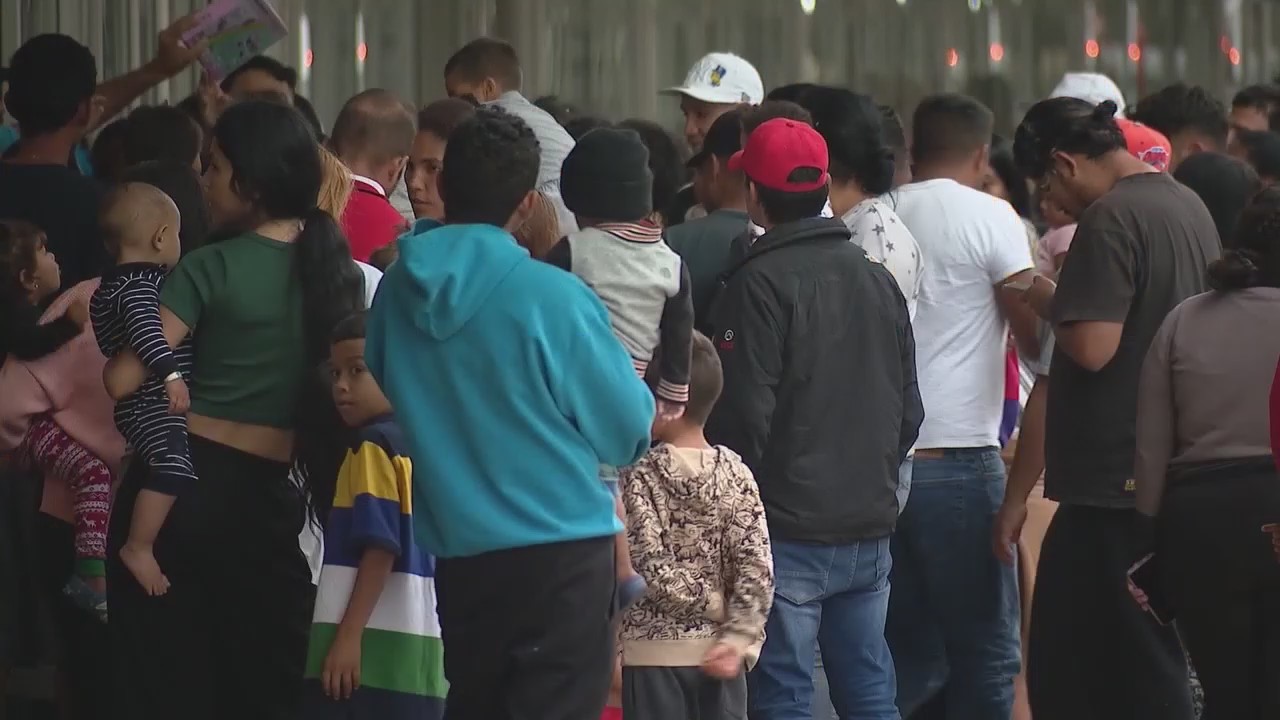Alivio Medical Center providing compassionate care for migrant families in Chicago

Chicago medical center providing care for migrant families
For many migrant families, seeking medical care has been a years-long aspiration. However, their dreams are being realized at the Alivio Medical Center in Chicago.
CHICAGO - As thousands of migrants who are brand new to Chicago wait day after day for a place to stay, many of them – at the same time – are trying to navigate America’s complex healthcare system.
For nearly 35 years, Alivio Medical Center, which is comprised of seven locations on the city’s Southwest Side, has been committed to serving immigrants. In the last year, it has become a vital lifeline for migrant families arriving from the southern border.
"Some of them have been waiting years to get medical care for their kids," said Dr. Stephanie Liou, Alivio Medical Center Director of Pediatrics and Site Director of the Morgan Clinic. "These are parents who wanted what their kids needed. That’s what every parent wants. They want their kid to grow up healthy."
As a federally qualified health center, Alivio Medical Center – a bilingual, bicultural organization – is dedicated to serving all individuals, regardless of health insurance or financial means.
"That is our mission, is really to take care of anyone who walks through our doors," said Esther Corpuz, CEO, Alivio Medical Center. "We also apply for emergency Medicaid through the state, some of them get covered and some of them don’t."
Dr. Stephanie Liou has worked with countless parents who share that their children were diagnosed with various conditions in their home countries. However, Liou often hears that treatments were either unavailable or were unaffordable. As a result, parents undertook the challenging journey to America in search of a better life, including essential healthcare.
"I've seen families that have said, ‘you know they diagnosed my child with seizures,’ or ‘they said they needed a surgery,’ or you know, ‘we needed all these things, and we couldn’t get them in Venezuela or Colombia,’ or wherever they were," said Liou.
To further ease the process, most of Alivio's providers are bilingual, fostering a welcoming environment for families during what can be a highly stressful time.
In many cases, Liou says she has established a plan of care and provided patients with necessary vaccines and medications within days of their arrival to Chicago.
This comes as temperatures continue to drop, and thousands of migrants remain at police stations across the city. In some cases, children are still sleeping in lobbies and on sidewalks.
At CPD’s 7th District in Englewood, local minister Ziff Sistrunk, on Monday, invited other preachers to join him in sleeping outside for the next 40 nights.
"What I’m asking the city to do is let the churches get involved in placing these people in temporary housing until we’re able to place them," said Sistrunk.
Sistrunk says he will be sleeping at various police stations over the next several weeks in a show of support for new arrivals who are living this way – and in a call to action to get them indoors before it gets too cold.
"Migrants, new Americans, they are our responsibility now," said Sistrunk.
Sistrunk is hopeful the city will work with area churches to open their doors as shelters for migrant families this fall and winter.

